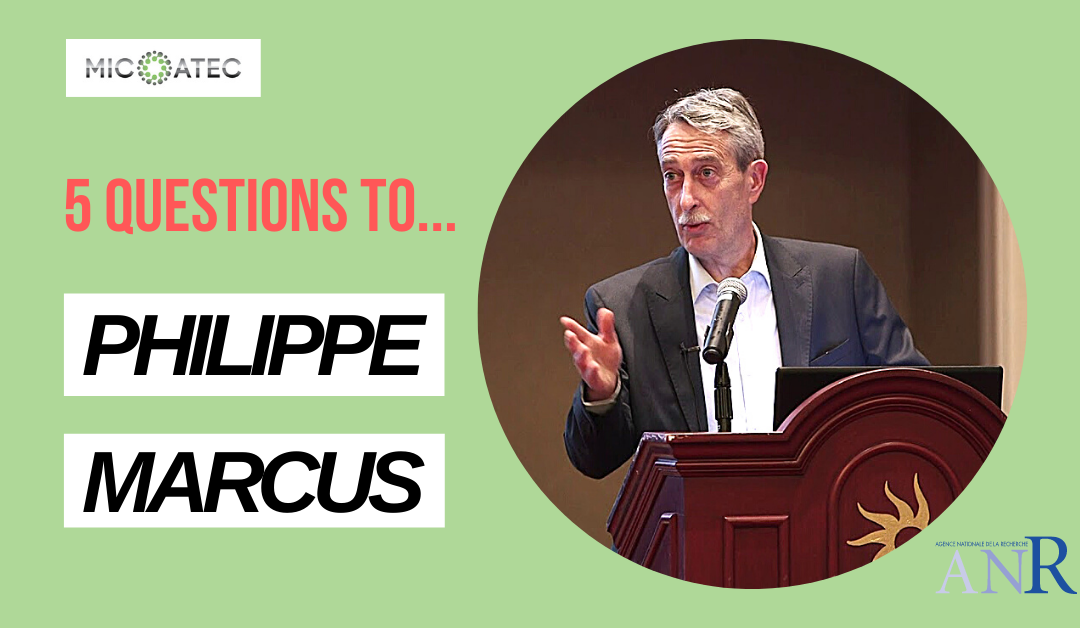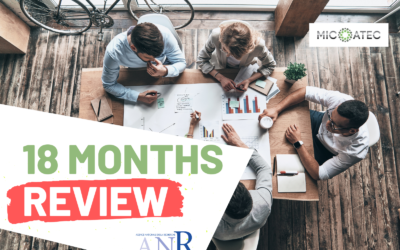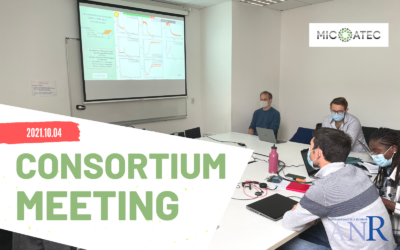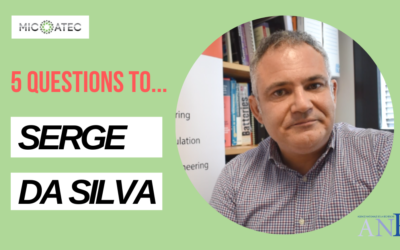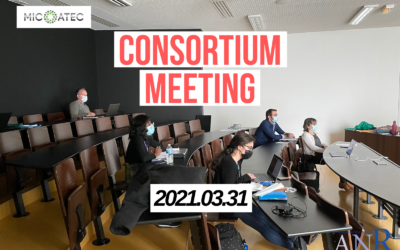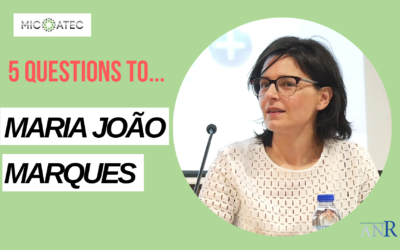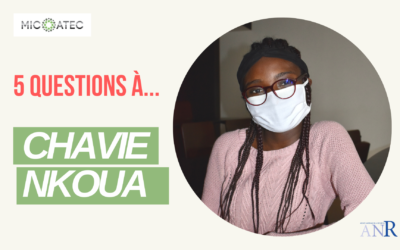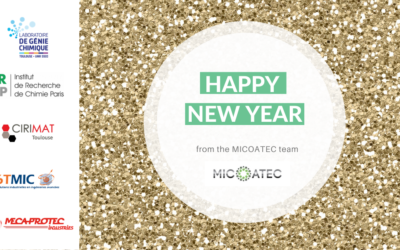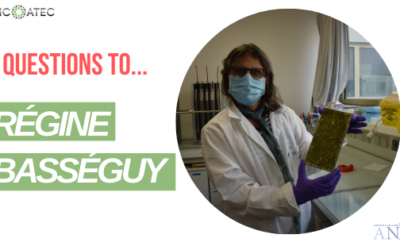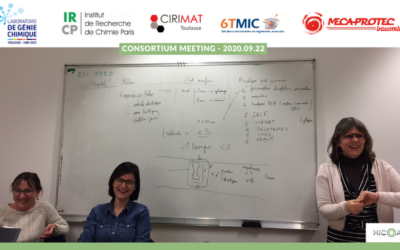Philippe MARCUS, a leader in corrosion science
Philippe MARCUS heads the Physical Chemistry of Surfaces research group (PCS) at IRCP/Chimie ParisTech. He is also the President of the French Corrosion Society (CEFRACOR) and former President of the European Federation of Corrosion. He also holds an ERC Advanced Grant on corrosion initiation mechanisms at nanometric and atomic scales.
The PCS lab brings together 25 people working on the relationships between structure and properties of metal surfaces.
Design a surface treatment that can be used industrially to respond to the phenomenon of degradation of metallic materials
The degradation of materials is an extremely important phenomenon because of its technical and economic implications but also because of the consequences on the safety of goods and people.
Understanding the mechanisms of material degradation …
Philippe MARCUS explains to us that the MICOATEC project offers a response to the phenomenon of material degradation since it aims at better understand the degradation mechanisms in a marine environment in which microorganisms are present and observe how certain bacteria can help protect these materials.
… and transpose these mechanisms to make a surface coating
Subsequently, it will address the question of transposing these mechanisms to make a surface treatment that can be used industrially.
Philippe MARCUS highlights the ambitious nature of the MICOATEC project, which ranges from understanding to the development of an innovative surface treatment. This innovation would have applications in various industrial sectors, particularly, in marine environment, for transport and energy.
A project of real interest for Chimie ParisTech
The PCS lab of Chimie ParisTech specializes in the study of surfaces and in particular in the study of the mechanisms that lead to the degradation, or on the contrary, to the protection of metallic materials.
The approach of the PCS lab is to uncover the link between the understanding of the phenomena on a very fine scale and the macroscopic manifestations in order to then find solutions.
For the laboratory, the MICOATEC project is very interesting as it aims precisely to understand, then use the elements of understanding, to find solutions to protect materials thanks to the positive effect that certain bacteria can have when they are present on the surface.
The role of the laboratory is to try to understand why and how certain bacteria can protect the material, in the MICOATEC’s case, an aluminum alloy in a marine environment.
To achieve this, the laboratory uses a large number of techniques for characterizing surfaces by electron spectroscopy, ion spectrometry, near-field microscopy combined with electrochemical measurements.
Many contributions, both for the laboratory and for the community
The contribution of the MICOATEC project for the PCS team at IRCP/Chimie ParisTech is at different levels. First of all, Philippe MARCUS mentions the complementarity of skills on an attractive subject since it goes from fundamental to applications.
It also addresses the quality of the scientific exchanges that are generated by this project and the possibility of having PhD theses in co-direction, which represents a real advantage both for the doctoral student and for the research teams.
Regarding the contribution of this project to the community, it is twofold :
- First, the contribution is cognitive; it allows a better understanding of the interactions between the surface of a material and its environment, mainly a marine environment. It also makes it possible to understand the conditions under which microorganisms present in this medium can play a favorable role in the lifespan of the material.
- The second step will on the development of an innovative surface treatment which would make it possible, on alloys, in particular aluminum alloys, to increase their lifespan, and to find possibly a process which could be interesting for different industrial partners.
Discover our other articles
Review of the first 18 months of the MICOATEC project
The MICOATEC project ambitions to develop a new environmental friendly process to produce anti-corrosive coatings using a biomimetic strategy. The starting point is the recognition that microorganism/metal interactions result in the formation of a layer that protects...
M18 Consortium meeting
Like every 6 months, the MICOATEC team met to make a progress report. Each in turn, the partners presented the results they have obtained over the last 6 months. The analyses carried out have once again highlighted the role of light on the corrosion of aluminum...
Interview of Serge Da SILVA
Discover the interview of Serge DA SILVA, the president of 6TMIC Ingénieries, a company specialized in technology transfer and partner of the MICOATEC project. The company supports companies and laboratories in their industrialization process on the market. From the...
M12 Consortium meeting
1 year already!It's been a year since the MICOATEC project was launched. ¼ of the time devoted to the project has now expired. On that occasion, the partners met last week in Toulouse (half face-to-face & half remote) for a consortium meeting. An intense day to...
The interview of Maria João MARQUES
Discover the interview of Maria João MARQUES, doctorant student on the MCIOATEC project.
Chavie NKOUA interview
Meeting with Chavie NKOUA, doctoral student working on the MICOATEC project. 1/ Can you introduce yourself in a few words? Hello, I am Chavie NKOUA, I am 26 years old and I am from Congo Brazzaville. I arrived in Toulouse for my university studies. Last year I...
Best wishes from the MICOATEC team
The all MICOATEC team wishes you a happy new year 2021 Looking back on 2020 It was in March 2020 that the MICOATEC project was launched, a few days later, both Italy and France were confined. Despite the health crisis, the partners worked hard to ensure that the...
Meeting with Régine BASSEGUY, MICOATEC project leader
Meeting with Régine BASSEGUY, Research Director at CNRS at the Toulouse Chemical Engineering Laboratory. In this interview, Régine presents the MICOATEC project, its origins but also its challenges as well as the various partners working on the project.Coordination of...
Consortium Meeting of 2020.09.22
On September 22, the M6 MICOATEC project consortium meeting was held. All the partners were present to take part in this meeting, some in Toulouse at ENSIACET, the other members were present by videoconference. Program : Update on the work carried out by the partners...

